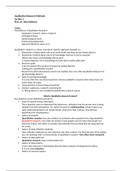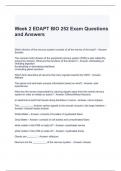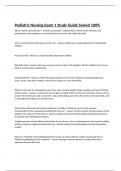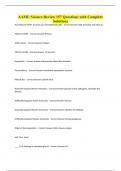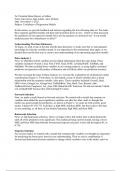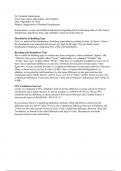Samenvatting
Summary all lectures MTO-E
- Instelling
- Tilburg University (UVT)
-ENGLISH below- Samenvatting van alle hoorcolleges MTO-E (Hoorcollege 1 t/m 11): 91 pagina's lang. Bevat alle tentamenstof en uitgebreide toelichting bij voorbeelden die gegeven werden tijdens het college. Ook staan er aantekeningen in (incl. plaatjes) die behandeld werden tijdens het hoorcollege ...
[Meer zien]
